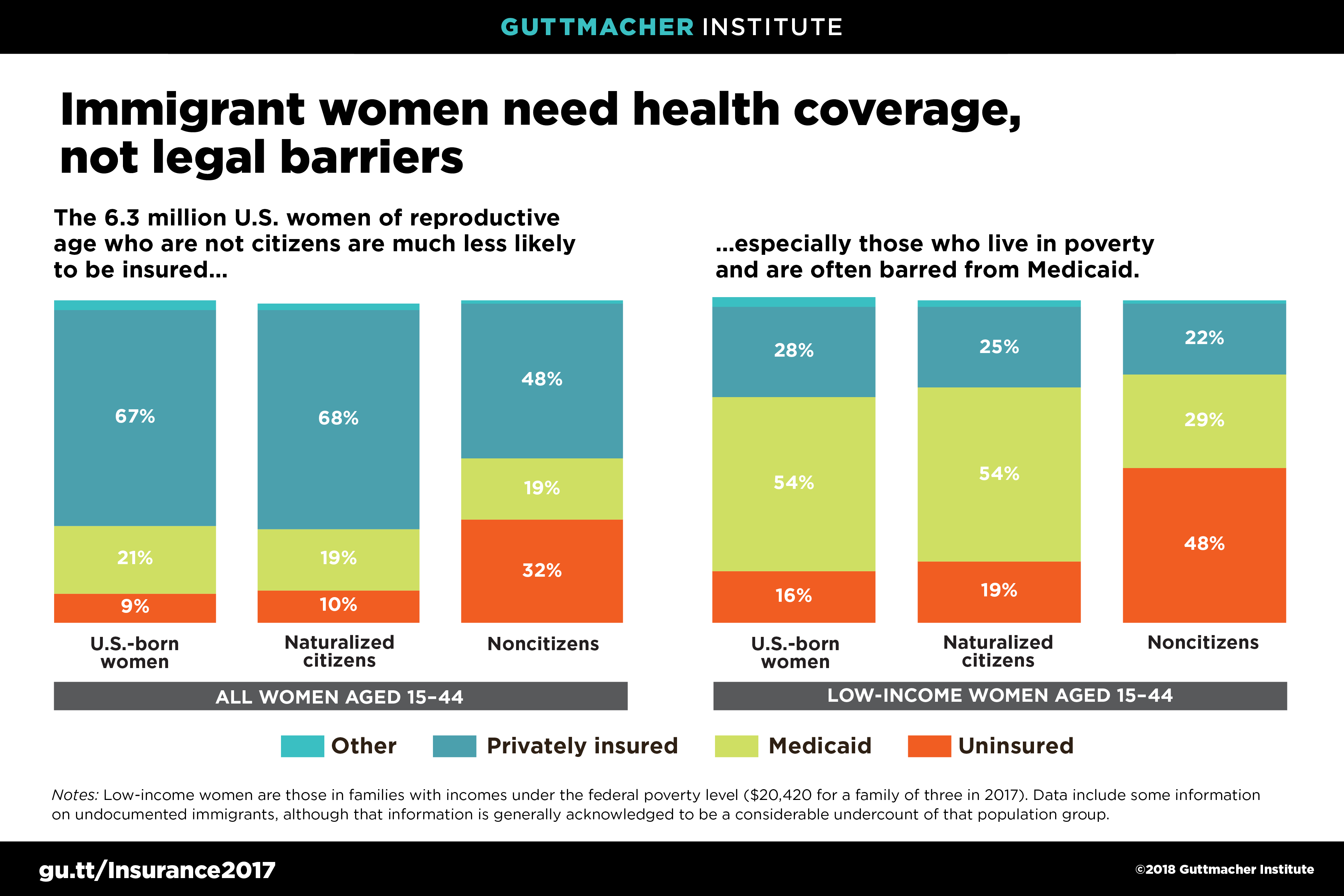Legislation reintroduced on October 15 in the U.S. House of Representatives by Rep. Pramila Jayapal (D-WA) would greatly expand immigrants’ eligibility for health insurance coverage and access to care, including sexual and reproductive health services. The bill would counter several intentionally harmful policies rooted in anti-immigrant sentiment and racism.
Currently, a patchwork of federal restrictions on Medicaid, the Children’s Health Insurance Program (CHIP) and the health care marketplaces established under the Affordable Care Act (ACA) have barred access to health coverage for many immigrants in the United States. The Health Equity and Access under the Law (HEAL) for Immigrant Women and Families Act would remove many of these legal barriers to coverage. Specifically, the bill would boost eligibility for coverage and care for three main groups:
- Lawfully present immigrants: Enable all lawfully present immigrants to enroll in Medicaid and CHIP if they are otherwise eligible, by eliminating the ban on enrollment that is currently in place for five years after an immigrant has established lawful status;
- Deferred Action for Childhood Arrivals (DACA) recipients: Enable all lawfully present people granted deferred action–most notably, young people with DACA status–to enroll in Medicaid or CHIP, if they are eligible, and to buy private insurance coverage on the ACA marketplaces and obtain the ACA’s subsidies designed to make coverage affordable; and
- Undocumented immigrants: Allow all immigrants, regardless of legal status, to buy ACA marketplace coverage and obtain the ACA’s affordability subsidies.
The current federal restrictions are harmful for immigrants’ health and interfere with their basic right to protect their own and their families’ health and economic well-being. In large part because of these restrictions, the 6.3 million noncitizen immigrant women of reproductive age in 2017 were far more likely to be uninsured than naturalized citizen immigrants or U.S.-born women (32% vs. 10% and 9%, respectively; see chart).
Those inequities are especially striking among reproductive-age women with incomes below the federal poverty line (a group in which immigrant women are overrepresented), where noncitizen immigrant women were three times as likely to be uninsured as U.S.-born women and about half as likely to have Medicaid coverage.

